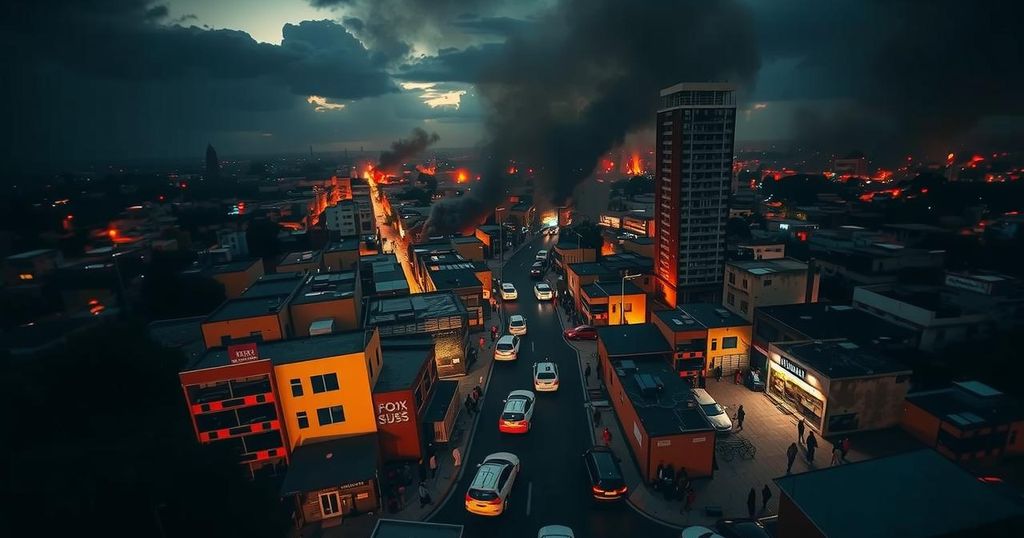Gunfire Erupts in Juba Amid Political Tensions Over Intelligence Chief’s Arrest
Heavy gunfire erupted in Juba, South Sudan’s capital, linked to the attempted arrest of former intelligence service chief Akol Koor Kuc. The incident occurred following a political power shift after Kuc’s dismissal by President Salva Kiir. While military officials claim Kuc was unharmed, the event underscores ongoing political instability and power struggles in the nation.
On Thursday evening, heavy gunfire erupted in Juba, the capital of South Sudan, amid attempts by security forces to apprehend the ousted head of the country’s intelligence service. Reports indicate that the clashes began around 7 p.m. local time and persisted for over an hour. A United Nations safety alert instructed personnel in Juba to remain sheltered due to the unrest linked to the former National Security Service head’s arrest. Despite claims of ongoing gunfire, Army spokesperson Major General Lul Ruai Koang asserted that Akol Koor Kuc had not been apprehended and had been safely at his residence during the incident. The situation highlights ongoing power struggles within the government, exacerbated by recent political shifts and postponed elections.
The tensions in South Sudan’s capital arise from a broader context of political instability and power struggles stemming from the civil war that raged from 2013 to 2018. President Salva Kiir’s recent dismissal of Akol Koor Kuc, who had served as the head of the National Security Service since the country’s independence, signifies deepening divisions within the government. The transitional government’s recent announcement to postpone elections for a second time reflects continued instability in the political landscape. While an uneasy peace has persisted since the civil conflict, sporadic violence among rival factions underscores the fragile security environment in the nation.
In summary, the heavy gunfire in Juba signals deepening political tensions within South Sudan, amplified by the recent dismissal of the intelligence chief and postponed elections. The Army’s assurance of the former intelligence head’s safety juxtaposed against the violence illustrates the complex dynamics at play. As South Sudan continues to navigate its transitional governance, the threat of renewed conflict looms, making it crucial for national and international stakeholders to monitor the developments closely.
Original Source: www.usnews.com




Post Comment